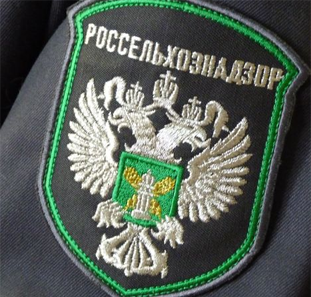Rosselkhoznadzor discussed with the European Commission the situation with the spread of African swine fever

On December 28, a meeting was held via videoconference with representatives of the European Commission for HEALTH and Food Safety (DG SANTE). ROSSELKHOZNADZOR was represented at the event by Deputy HEAD Konstantin Savenkov.
Rosselkhoznadzor expressed concern about the wide and intensive spread of African swine fever throughout the European Union. Of particular concern is the unique introduction of the virus to Italy, where in the 3 weeks that have passed since the first confirmed death of a wild boar from ASF, another 13 infected individuals were identified. At the same time, the distance from outbreaks in the provinces of Piedmont and Liguria to the nearest unfavorable zone is at least 900 km, which makes it important to establish the exact causes of what happened.
The reports presented on the EU information resources do not fully explain the factors contributing to the occurrence of ASF in Italy. Information about efforts to eliminate the outbreak and prevent further movement of the virus to Rosselkhoznadzor was not received from the Italian veterinary service.
In this regard, Konstantin Savenkov appealed to representatives of the European Commission with a request to send the results of the investigation to the department, up-to-date data on measures taken in the European Union to combat ASF.
According to the OIE, in 2021, 8.4 thousand outbreaks of African swine fever were recorded in the EU, of which 1.76 thousand in domestic pigs and 6.67 thousand in wild boars. As early as 2013, Russian experts predicted the introduction of ASF to Europe through the northern and southern vectors and the further spread of the disease.
According to the Rosselkhoznadzor , the situation will worsen, as ASF is steadily spreading deep into the EU, which raises relevant questions about the capabilities of veterinary services.
Given the risk of introducing the disease into RUSSIA with finished MEAT products supplied from the EU, Rosselkhoznadzor intends to conduct inspections in exporting countries of dry-cured products, which include pork, and also continue to conduct inspections of manufacturers of feed and feed additives for animals.
In connection with the severe ASF epizootic situation in the European Union and based on the unsatisfactory results of inspections of European feed production enterprises, which showed a lack of traceability of sources of raw materials of animal origin, as well as non-compliance with the necessary heat treatment of these raw materials, Rosselkhoznadzor requested detailed information from European colleagues on movement control , as well as the use of components containing pork in the production of feed.
Representatives of the European Commission noted that they are engaged in establishing the reasons for the introduction of ASF to Italy and will send the results of their investigation to the Rosselkhoznadzor. At the moment, only the absence of a connection between outbreaks in the continental part of Italy with the island of Sardinia, which is stationary for ASF, has been confirmed.
The European Commission confirmed the difficulty of controlling the disease, reported on the measures taken to contain its spread and provided a detailed presentation on the movement of the virus.
In conclusion, the parties agreed to adhere to the principle of openness and continue the dialogue on this topic and other problematic issues.
Read together with it:
- A large livestock complex was opened in the Kobrin districtNovember 8, Brest. A large livestock complex was opened today in the Kobrin district, BELTA reports.Work at JSC Radonezhskoye began in 2022. Specialists built two box-type cowsheds with a capacity of 480 heads each, as well as a milking and dairy unit with a mini-boiler room. A water tower with a pumping station for an artesian well was also installed on the territory. Particular attention was pai...
- What grain processing products does Belarus export?November 8, MINSK . In the BELTA YouTube project “In fact: decisions of the First,” Sergei Kravtsov, General DIRECTOR of the Scientific and Practical Center of the National Academy of Sciences of Belarus for Agriculture, told what grain processing products Belarus exports . “For the first time in the last three years, we are not selling grain. The President banned the sale of it and did the right ...
- "На вес золота в наше время каждый колосок". Почему Лукашенко требует бережного отношения к зернуАлександр Лукашенко на пшеничном поле ОАО "Александрийское", август 2017 года Александр Лукашенко во время посещения Белорусской национальной биотехнологической корпорации (БНБК) в Пуховичском районе, ноябрь 2022 года Фото из архива Александр Лукашенко на пшеничном поле ОАО "Александрийское", август 2......
- Великобритания:Правительство обязалось прекратить экспорт живых животныхЗаконопроект о защите животных (экспорт домашнего скота) выполнит обещание правительства, данное в декабре 2020 года, прекратить экспорт живых животных. Законопроект был включен в речь короля, в которой король Карл III изложил законодательные предложения правительства. Законопроект о содержании животных, ранее являвшийся краеугольным камнем правительственной программы защиты животных, раньше полож...
- Russia is not considering introducing new restrictions on food exports"No. Just anything that had to do with poultry," she said when asked about it. "We are talking about the fact that we need a certain volume, if we are talking about poultry MEAT. Due to several factors, in some months of this year we recorded a decrease in production. In order to increase the volume, a decision was made to open new enterprises in Kazakhstan and Belarus - our partners in the EAEU ....
- Япония открыла рынок для британских продуктов из мяса птицыМясо птицы из Великобритании экспортируется в Японию после того, как в 2021 году было заключено соглашение о доступе к рынку свежей и приготовленной птицы, но вспышки птичьего гриппа в Великобритании привели к ограничениям на торговлю. Новое соглашение обеспечивает более беспрепятственную торговлю приготовленным мясом птицы, а это означает, что может быть осуществлен дополнительный экспорт в Япони...
- New restrictions on the export of chicken from Russia have become the subject of discussionDeputy Prime Minister Victoria Abramchenko emphasized that a discussion on the ban on chicken exports has not yet taken place, and a decision on this issue has not yet been made. However, she stressed that new restrictions on food exports other than chicken are not being considered. Abramchenko also noted that the introduction of new enterprises in Kazakhstan and Belarus will increase the volume o...
- Russia is preparing to start exporting pork to China by mid-2024For several years, the General Administration of Customs of CHINA held negotiations with Russian departments, and the result was the abolition of restrictions for all regions of RUSSIA. Now it is necessary to draw up the relevant documents and agree on examination procedures for enterprises involved in the supply of pork to the Chinese market. Pork exports to China represent enormous potential for...
- In the Smolensk region, the upward trend in exports of animal products continuesOf this volume, 70% (about 2.67 thousand tons) accounted for feed and feed additives, 29% - MILK and dairy products (about 1.1 thousand tons), and fish products accounted for about 1% (about 40 tons ). In particular, feed and feed additives (yeast) were exported to Uzbekistan , the Czech Republic and a number of other European countries. Whey powder was supplied to CHINA , milk powder to Azerbaija...
- Rosselkhoznadzor has strengthened control over the products of four enterprisesIn particular, during a laboratory examination of samples of Kupecheskie sausages sold in one of the stores in the Krasnodar Territory, the coccidiostat dinitrocarbanilide was detected at a concentration of 70.2 mcg per kilogram. Products that do not meet food safety requirements were produced by SHP "South of Luxury Industry" LLC (Yugrosprom) in Novoaleksandrovsk ( Stavropol Territory ). Sulfamet...




























































